#Subversion
Text

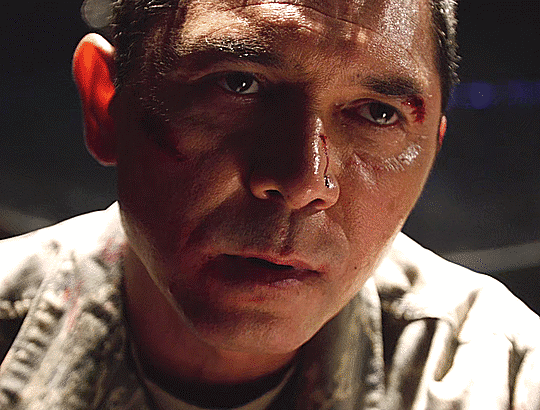
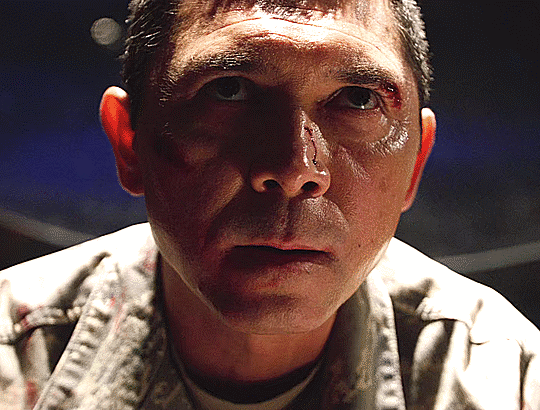
Lou Diamond Phillips as Colonel David Telford, Stargate Universe "Subversion"
#Stargate Universe#SGU#Subversion#Lou Diamond Phillips#David Telford#syfysource#stargate-source#scifiedit#tvedit#stargateedit#sguedit#GIF#my gifs#sgu s1#1.18#it's not a stargate rewatch rewatch#hide and queue
16 notes
·
View notes
Text

Louise Cherry — Subversion III (acrylic and oil on canvas, 2021)
153 notes
·
View notes
Text
El Salvador President Nayib Bukele on the USA decay.
392 notes
·
View notes
Text
How to Subvert Expectations Without Compromising The Story
Whoo boy, is this a contentious topic with the last few blockbuster franchises. To “subvert expectations” is to do the opposite of whatever your audience expects to happen. Your audience expects the story to go a certain way based on the archetypes and tropes your characters follow, the tone you’ve set for your story, and the level of mature themes that tone allows.
It might mean your long-lost princess doesn’t actually reclaim the throne she’s been fighting for. Or the presumed hero (or any of their straight friends) of the story dies halfway through their arcs. The mentor pegged for death actually survives to the end credits. The villain’s plan actually succeeds, or the heroes fail to deactivate the bomb before it explodes. The “will they/won’t they” is never fulfilled.
Supporters of SE argue the following:
It’s refreshing, novel, new, a fun twist on a classic tale
They like that it’s unpredictable and bold
They��re tired of stories fitting within the same wheel ruts of every other story that came before and like to see creativity thrive
It gives audiences something they didn’t even know they wanted
Haters of SE argue this:
It’s only done for drama at the cost of fulfilling character arcs
It’s a cheap gag that only works once and has zero rewatchability with the same impact
Tropes and archetypes have stood the test of time for a reason - to entertain
Plot holes ensue
When expectations are subverted and the story changes in a more positive light (like a beloved character who doesn’t die when we all think they will), the reaction is not nearly as emotionally charged as when the story changes negatively. Thus, the haters have plenty of evidence of bad examples, but minimize the good ones. Good SE is novel, or a pleasant surprise, or a quaint relief. Bad SE trashes the story and spits on the fans and destroys the legacy of the fandom.
What makes a bad subversion?
Like killing any character for shock value, bad SE takes all of the potential of a good story and gambles it for a string of gasps in the movie theater. It exists only to keep the audience on their toes, or because the writer went out of their way to change the direction of their work when fans figured out the mystery too quickly and now *must* prove all the clever sleuths wrong.
So, say your subversion is making the hero lose a tournament arc when they made it all the way to the final round and the entire story is riding on this victory. They may have stumbled along the way and had some near-misses, but they must win. Not just so the audience cheers, but because this is the direction their arc must take to be at all entertaining and fulfilling.
Then they lose, because it’s *novel* and irreparable consequences are reaped in the aftermath. They lose when, by rights, they were either stronger or smarter or faster than their opponent. They lose when the hand of the author rigs the fight against them and everyone notices.
Sure, it’s not at all what audiences expect, but you, writer, your first responsibility to the people consuming your content is to entertain them. So what purpose does this loss serve this character? How does it impact their arc, the themes that surround them, the message of your story?
Even if mainstream audiences don’t care on the surface about themes and motifs, they still know when a story fumbles. It’s not entertaining anymore, it’s not satisfying. Yes, crap happens in reality, but this is fiction. If I wanted to read about some tragic hero’s bitter and unsatisfying demise, I’d read about any losing side in any war ever in a history book. I picked up a fiction book for catharsis.
On the topic of “gritty fantasy/sci-fi anyone can die and no one is safe” – no author has the guts to roll the dice and kill whoever it lands on. Some characters will always have plot armor. Why? Because you wouldn’t have a story otherwise, you’d just have a bloody, gory, depressing reality TV show with hidden cameras.
What makes a good subversion?
Now. What if this character loses the final round of their tournament, but it’s their own fault? Maybe they get too cocky. Maybe it’s perfectly, tragically in character for them to fall on their own sword. Maybe the audience is already primed with the knowledge that this fight will be close, that there might be foul play involved, but still deny that it will happen because that’s the hero, they won’t lose. Until they do.
Then, it’s not the hand of the author, it’s this character’s flaws finally biting them in the ass. It’s still disappointing, no doubt, but then the audience is less mad at the author and more mad at the dumbass character for letting their ego get to their head.
If you write a character who’s entire goal in life is to win that trophy, or reclaim their throne, or get the girl, and they *don’t* do those things, then the “trophy” had better be the friends they made along the way, that they learned it wasn’t the trophy, it was something *better* and even though they lost, they still won. Even when expectations are shredded, the story still has to say something, otherwise the audience just feels like they wasted their time.
A good subversion does not compromise the soul of the narrative. You might kill a fan favorite character or even the hero of the story, but their impact on the characters they leave behind is felt until the very end. The hero might lose her tournament, but she still walks away with wisdom, maturity, and new friends. Heck, sports movies leave the winner of the big game a toss-up more often than not. Audiences know the game is important, but they know the character they’re following is even more important. Doesn’t matter if the *team* loses the battle, so long as the protagonist wins the Character Development war.
Good SE that should be more popular:
The “Trial of threes” – your hero faces three obstacles and usually botches the first two and succeeds on the third attempt. Subvert it by having them win on the first or second, lose all three, or have a secret fourth
Not killing your gays. Just. Don’t do it. That’ll subvert expectations just fine, won’t it?
Let the villain win
Have your hero’s love interest not actually interested in them because they realize they deserve better / Have the hero realize they don’t want the romantic subplot they thought they did
Have the love triangle become a polycule / have the two warring love interests get with each other instead, or both find someone they don’t have to compete for
Mid-redemption villain backslides at the Worst Moment Possible
Hero doesn’t actually have all the MacGuffins necessary at the Worst Moment Possible
Hero is simply wrong, about anything, about important things, about themselves
The character who knows too much still can’t warn their friends in time, but lives instead with the guilt of their failure
The mentor lives and becomes a bitter rival out to maintain their spot at the top of the charts
Kill the hero, and make the villain Regret Everything
More deadbeat missing parents, not just dead parents
Let the hero live long enough to become the villain
—
Why write a crown prince that never becomes king? What’s the point of his story if all he does is remain exactly who he was on page 1 and learns nothing for his efforts? Why write a rookie racer if he spins out in the infield in the big race and ends his story broken and demoralized in a hospital bed? Why should we, the audience, spend time and emotional investment on a story that goes nowhere and says nothing?
Cinderella always gets a happy ending no matter how many iterations her story gets, because she wouldn’t be Cinerella if she remained an abused orphan with no friends. We like predictability, we like puzzling out where we think the story will go based on the crumbs of evidence we pick up along the way, we like interacting with our fiction and patting ourselves on the back when we’re proven right.
Tragedies exist. There’s seven types of stories and the fall from grace is one of them… but audiences can see a tragedy coming from a mile away. Audiences sign up for a tragedy when they pay for the movie ticket. We know, no matter how much we root for that character to make better choices, that their future is doomed. Tragedy is still cathartic.
What’s not cathartic is being bait-and-switched by a writer who laughs and snaps pictures of our horrified faces just so they can say they proved us wrong. Congratulations? Go ahead and write the rookie broken in the hospital bed. I can’t stop you. Just don’t be shocked when no one wants to watch your misery parade march on by.
#writing resources#writing advice#writing tips#writing tools#writing a book#subverting expectations#subversion
143 notes
·
View notes
Text
What is the process of subversion? 🤔
#pay attention#educate yourselves#educate yourself#knowledge is power#reeducate yourself#reeducate yourselves#think about it#think for yourselves#think for yourself#do your homework#do some research#do your own research#ask yourself questions#question everything#demoralization#subversion#brainwashing
93 notes
·
View notes
Text
One thing I like about Izutsumi from Dungeon Meshi is that while she certainly counts as a "Catgirl", she's not some cutesy, easily fetishized, nyah-welcome-home-master kind of catgirl. Hell, she doesn't even have giant tits, or even moderately-sized tits.
But she does display a lot of traits similar to cats: aside from some catlike mannerisms like purring or landing on her feet, she's pretty stand-offish, and comes off as self-centered and even rude at first glance, often bluntly stating how she feels about something. She prefers solitude, coming and going as she pleases. Still, she eventually warms up to others' company (usually after food is offered), and even then it's almost entirely on her own terms. Eventually we see that Izutsumi can be passionate and caring about others, just not in an outward manner. She's probably the most cat-like catgirl ever
464 notes
·
View notes
Note
Do you agree that when Martin write characters thinking something will never happen or can't happen it's actually a hint that this thing will happen ? For example when Sansa thinks she'll never see Jon again it's a hint that she will in fact reunite with him in the future.
Hi there!
I wouldn't call it a universal rule, because I certainly don't think that Dany will ever have a living child, even though the subject is given the "never" treatment so much that many readers expect it to be subverted. Thematically, it makes sense for this prediction to be true. GRRM is showing us how Dany stands in conflict with the concept of motherhood all the time. The repetition of this line tells us something about her relationship with this conflict, but it's not introducing a dramatic irony.
But that Sansa quote in particular? Or "No one will ever marry me for love"? They make sense for Sansa from her POV but there is no reason to expect them to reflect the truth. Not only is the desire for love - and her subsequent disillusionment - a big theme in her story, it's also heavily hinted to continue to play a role in her future since it represents the climactic point of her conversation with Cersei after her flowering. ("Everybody wants to be loved." / "Love is a poison. A sweet poison, yes, but it will kill you all the same.") She no longer expects to be loved but the subject keeps popping up. GRRM is doing that for a reason.
In the same vein, why would GRRM bring up the idea of Sansa never seeing Jon again? It's never been a pressing concern for either of them before this moment. There is no point to this particular "never", unless he wants to subvert it. To bring it up introduces the thought of their meeting again in the first place. There can be no clearer hint that this is setting up a future event.
27 notes
·
View notes
Text
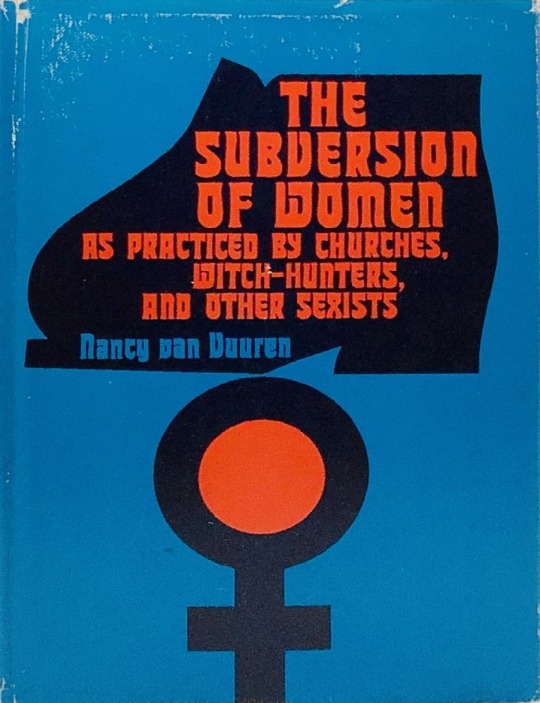
Nancy van Vuuren - The Subversion of Women - Westminster Press - 1973 (book design by Dorothy Alden Smith)
#witches#women#occult#vintage#the subversion of women#westminster press#nancy van vuuren#church#priests#witch-hunters#sexists#1973#subversion#dorothy alden smith
25 notes
·
View notes
Note
https://twitter.com/kmmwkindness_/status/1636463202476105748?t=KYJGdvxhRw6B_zt8560QDg&s=19
Huh?? Why would he say that 😂💀
LOUIS’ SMILE AND LOOK INTO THE CAMERA AT THE END. I AM SCREAMING 🤣🤣🤣🤣
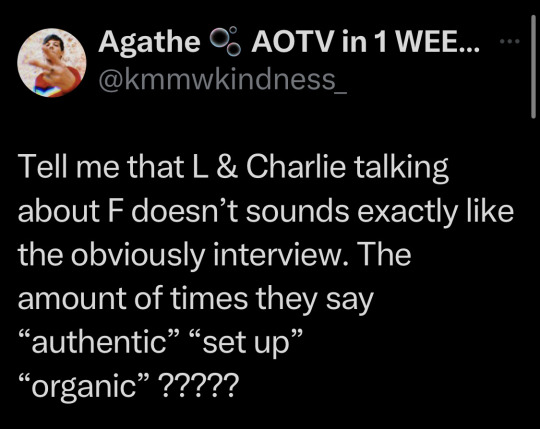
x
216 notes
·
View notes
Text

Daisies (Czech: Sedmikrásky, 1966) · Film stills from the first scene

Sunbathing at an outdoor pool, Marie I (brunette) and Marie II (blonde) come to the conclusion that the world is spoiled. It’s a short leap to deciding they are spoiled too, but “so what?”. From that moment on, they run riot. | src Berlinale 2023

Daisies (Czech: Sedmikrásky) is a 1966 Czechoslovakian Surrealist dramatic comedy written and directed by Věra Chytilová regarded as a milestone of the Czechoslovak New Wave movement.
view and read more on wordPress
#Sedmikrásky#sedmikrasky#film still#czech cinema#1960s#female roles#subversion#Věra Chytilová#Vera Chytilova#friends#Freundinnen#friendship#feminism#gender roles#patriarchy#bikini#sunbather
61 notes
·
View notes
Text
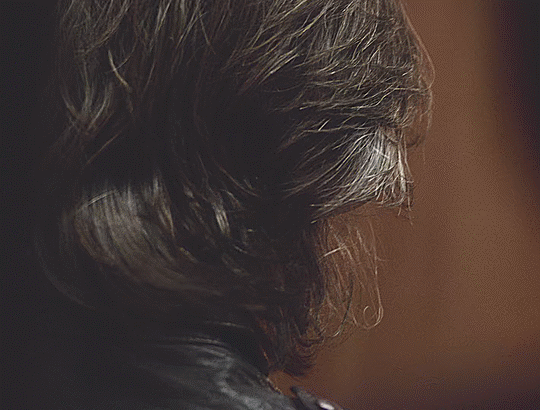
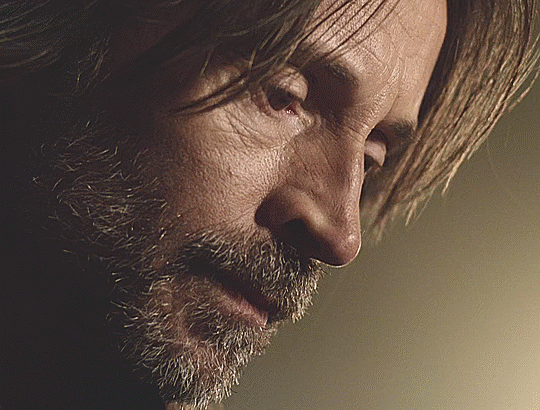
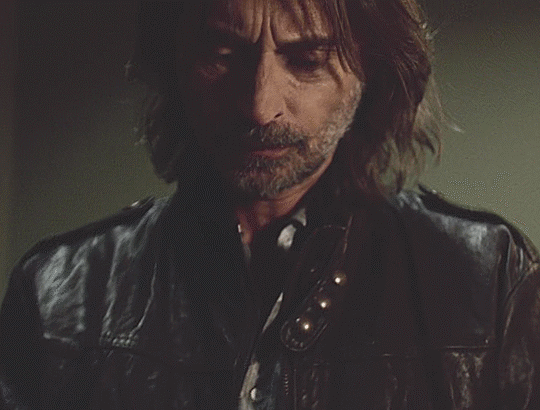
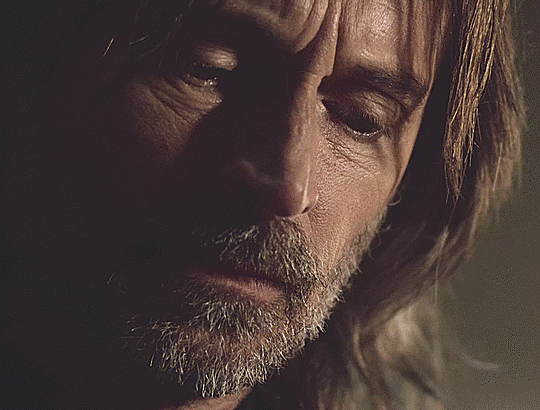
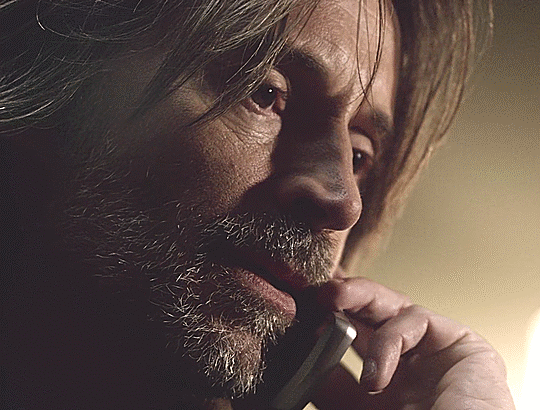
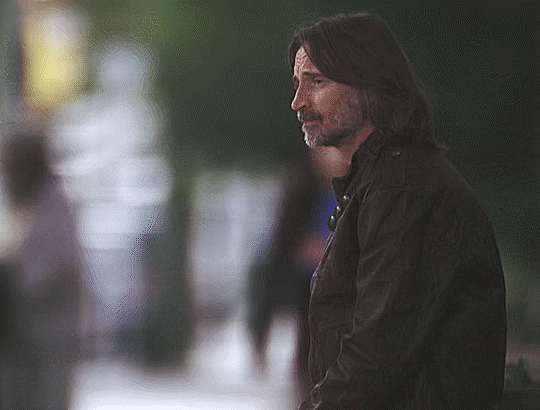
Robert Carlyle as Nicholas Rush in Stargate Universe's "Subversion"
#Stargate Universe#SGU#Subversion#Nicholas Rush#Robert Carlyle#syfysource#stargate-source#scifiedit#tvedit#stargateedit#sguedit#GIF#my gifs#sgu s1#1.18#it's not a stargate rewatch rewatch#hide and queue
112 notes
·
View notes
Text
"It doesn’t have to be the way it is is a playful statement, made in the context of fiction, with no claim to 'being real.' Yet it is a subversive statement.
Subversion doesn’t suit people who, feeling their adjustment to life has been successful, want things to go on just as they are, or people who need support from authority assuring them that things are as they have to be. Fantasy not only asks 'What if things didn’t go on just as they do?' but demonstrates what they might be like if they went otherwise — thus gnawing at the very foundation of the belief that things have to be the way they are.
So here imagination and fundamentalism come into conflict.
A fully created imaginary world is a mental construct similar in many respects to a religious or other cosmology. This similarity, if noticed, can be deeply disturbing to the orthodox mind.
When a fundamental belief is threatened the response is likely to be angry or dismissive — either 'Abomination!' or 'Nonsense!' Fantasy gets the abomination treatment from religious fundamentalists, whose rigid reality-constructs shudder at contact with question, and the nonsense treatment from pragmatic fundamentalists, who want to restrict reality to the immediately perceptible and the immediately profitable. All fundamentalisms set strict limits to the uses of imagination, outside which the fundamentalist’s imagination itself runs riot, fancying dreadful deserts where God and Reason and the capitalist way of life are lost, forests of the night where tigers hang from trees by the tail, lighting the way to madness with their bright burning.
Those who dismiss fantasy less fiercely, from a less absolutist stance, usually call it dreaming, or escapism.
Dream and fantastic literature are related only on a very deep, usually inaccessible level of the mind. Dream is free of intellectual control; its narratives are irrational and unstable, and its aesthetic value is mostly accidental. Fantastic literature, like all the verbal arts, must satisfy the intellectual as well as the aesthetic faculty. Fantasy, odd as it sounds to say so, is a perfectly rational undertaking.
As for the charge of escapism, what does 'escape' mean? Escape from real life, responsibility, order, duty, piety, is what the charge implies. But nobody, except the most criminally irresponsible or pitifully incompetent, escapes to jail. The direction of escape is toward freedom. So what is 'escapism' an accusation of?
'Why are things as they are? Must they be as they are? What might they be like if they were otherwise?' To ask these questions is to admit the contingency of reality, or at least to allow that our perception of reality may be incomplete, our interpretation of it arbitrary or mistaken.
I know that to philosophers what I’m saying is childishly naive, but my mind cannot or will not follow philosophical argument, so I must remain naive. To an ordinary mind not trained in philosophy, the question — do things have to be the way they are / the way they are here and now / the way I’ve been told they are? — may be an important one. To open a door that has been kept closed is an important act.
Upholders and defenders of a status quo, political, social, economic, religious, or literary, may denigrate or diabolize or dismiss imaginative literature, because it is — more than any other kind of writing — subversive by nature. It has proved, over many centuries, a useful instrument of resistance to oppression.
Yet as Chesterton pointed out, fantasy stops short of nihilist violence, of destroying all the laws and burning all the boats. (Like Tolkien, Chesterton was an imaginative writer and a practicing Catholic, and thus perhaps particularly aware of tensions and boundaries.) Two and one make three. Two of the brothers fail the quest, the third carries it through. Action is met with reaction. Fate, Luck, Necessity are as inexorable in Middle-earth as in Colonus or South Dakota. The fantasy tale begins here and ends there (or back here), where the subtle and ineluctable obligations and responsibilities of narrative art have taken it. Down on the bedrock, things are as they have to be. It’s only everywhere above the bedrock that nothing has to be the way it is.
There really is nothing to fear in fantasy unless you are afraid of the freedom of uncertainty. This is why it’s hard for me to imagine that anyone who likes science can dislike fantasy. Both are based so profoundly on the admission of uncertainty, the welcoming acceptance of unanswered questions. Of course the scientist seeks to ask how things are the way they are, not to imagine how they might be otherwise. But are the two operations opposed, or related? We can’t question reality directly, only by questioning our conventions, our belief, our orthodoxy, our construction of reality. All Galileo said, all Darwin said, was, 'It doesn’t have to be the way we thought it was.'"
- Ursula K. Le Guin, from her blog entry "It Doesn’t Have To Be the Way It Is," June 2011.
#ursula k. le guin#quote#quotations#fantasy#fiction#science fiction#escapism#sci fi#imagination#asking questions#science#uncertainty#subversion#resistance#politics#leftism#education#critical thinking#books#reading#fundamentalism#neoliberalism#capitalism
31 notes
·
View notes
Text

Louise Cherry — Subversion II (oil on canvas, 2021)
147 notes
·
View notes
Text
If you were a legit soviet clairvoyant, and told Comrade Andropov what would transpire in the USA, in the future, he would not believed it. That is how far gone things are.

41 notes
·
View notes
Text
I've talked about this before, but it leaves such a bad taste in my mouth whenever the character in a movie or series who is meant to be the comedic relief due to his constant flatulence is fat.
Not because — as some of you might incorrectly and sensitively assume — I think the idea of something as innocuous as fart humor should be limited to a certain body type, but because it feels so in line with the "Fat Slob" trope that assigns most, if not all unpleasant bodily functions to those characters who are not conventionally attractive.
It goes without saying that gross actions like burping, farting, sweating, etc., are things that everyone does, so I needn't write an entire think piece explaining how much more socially conscious we should be.
However, what I find funny is that if we are to employ the logic that the reason why fat people do these things more often because of their "worse" diet, there are so many food choices that thinner, conventionally attractive make that cause them to do exactly the same things.
For example, it's a commonly used joke amongst those who frequent the gym especially on social media, that in order to build muscle you have to eat a lot of protein and that this often involves adding lots of whey powder to things which makes people gassy given that it's a component of dairy products.
There's already many depictions in media of the typical douchey, frat-bro, jock gymbro who in some instances uses bodily functions as a way to convey his arrogance (namely in the form of belching loudly in someone's face after drinking a beer). How hard would it be to extend this concept to men like this that lack these antagonistic qualities?
I know subversions of the "Fat Slob" trope are already out there, but I think it would be a great way to continue this subversion as well as contributing to more range and inclusivity in plus-sized characters.
Imagine a friendship or relationship where it's the guy who's 6'2 with 6-pack abs, bulging biceps, and thick legs who blushes whenever he accidentally lets one go and people chastise him for it?
It's worth noting that the series Tacoma F.D. does a great job of accomplishing this with it's predominately male cast that has many muscled-up, in shape guys, and an abundance of fart scenes when compared to other shows.
Take notes Hollywood.
#subversion#writing#screenwriting#screenplay#fart scene#fatphobia#writing tropes#tv tropes#movie tropes
16 notes
·
View notes
Text
I read Hot Fuzz not as copaganda but as a rather overt condemnation of the vigilante cop trope and the very messed up damage people can inflict on an entire community when given unlimited authority.
The whole "break a bunch of laws for the greater good" thing is explicitly stabbed at, mocked and ultimately condemned as the central villains are revealed to have the pettiest motives for murdering random people.
The police chief was like Dirty Harry on steroids with a bloody cult on his side that needn't be held accountable for anything.
The main character Nicholas Angel grew up feeling lied to about people's supposed noble intentions, and lies were what kept true justice at bay in Sandford until an abused, neglected son decided to hold his dad accountable regardless of the consequences for himself.
Parental abuse, country bigotry, purposeful deceit and misdirection by authority figures, blind hatred and the impulses that followed.
These are not subtly hinted at, these are front and centre in Edgar Wright's Hot Fuzz.
To think it was a film from 2007, too.
Also David Bradley was funny as hell.
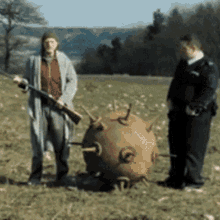
#hot fuzz#edgar wright#simon pegg#nick frost#jim broadbent#copaganda#subversion#racism#comedy#drama#abuse
35 notes
·
View notes